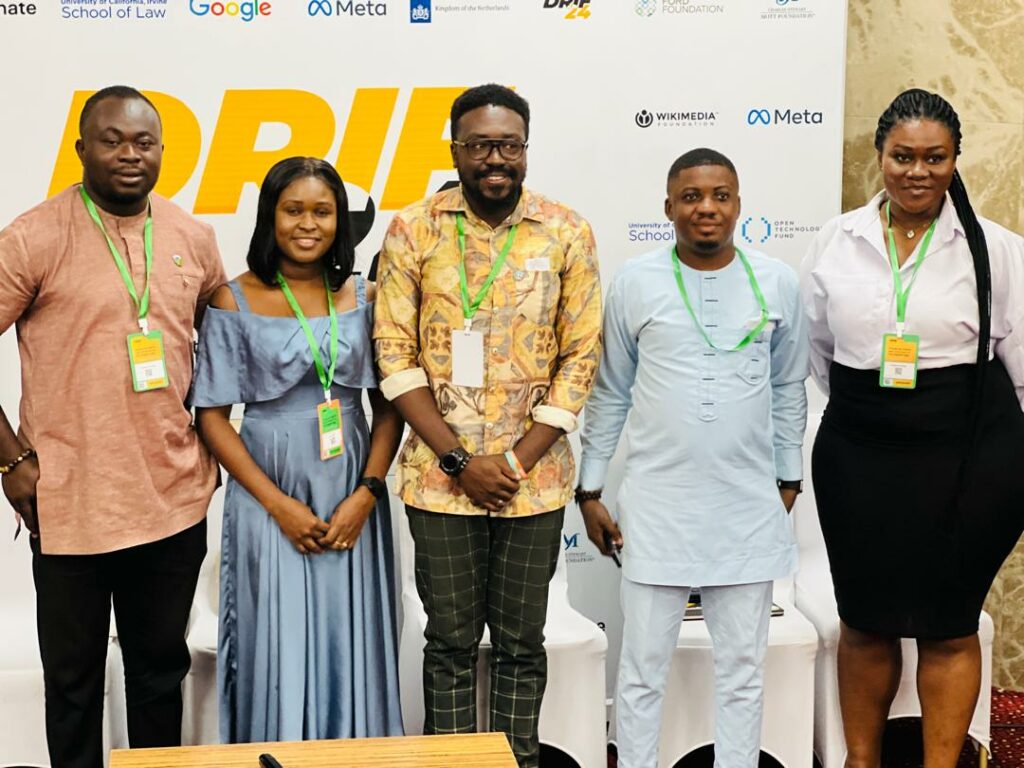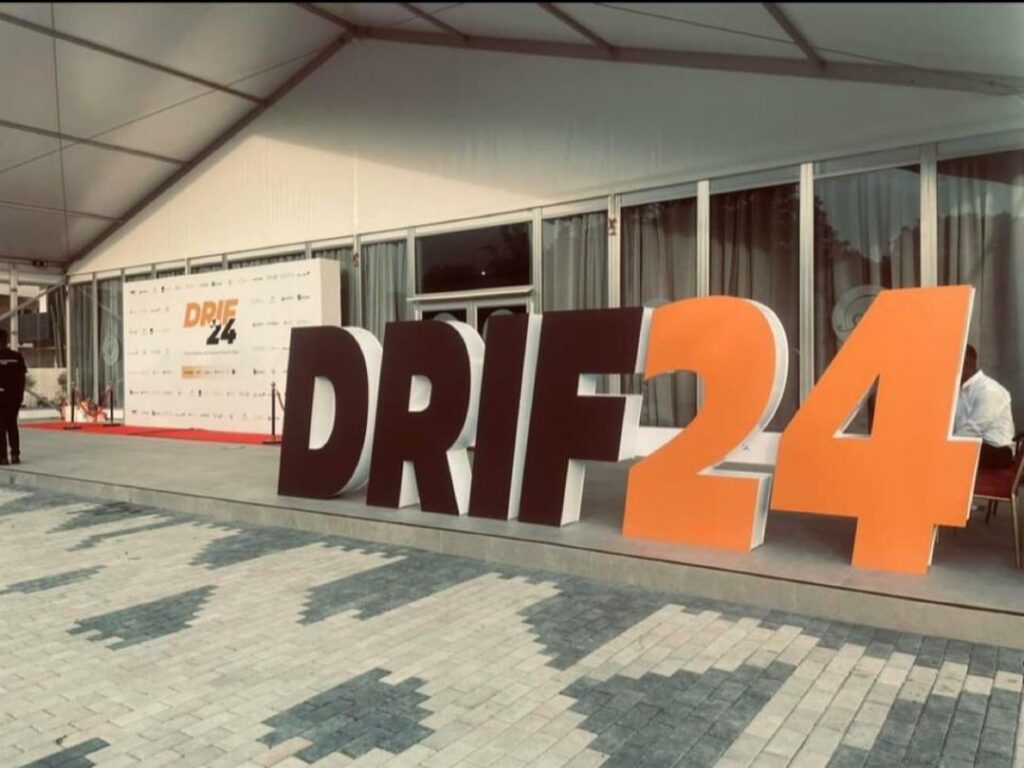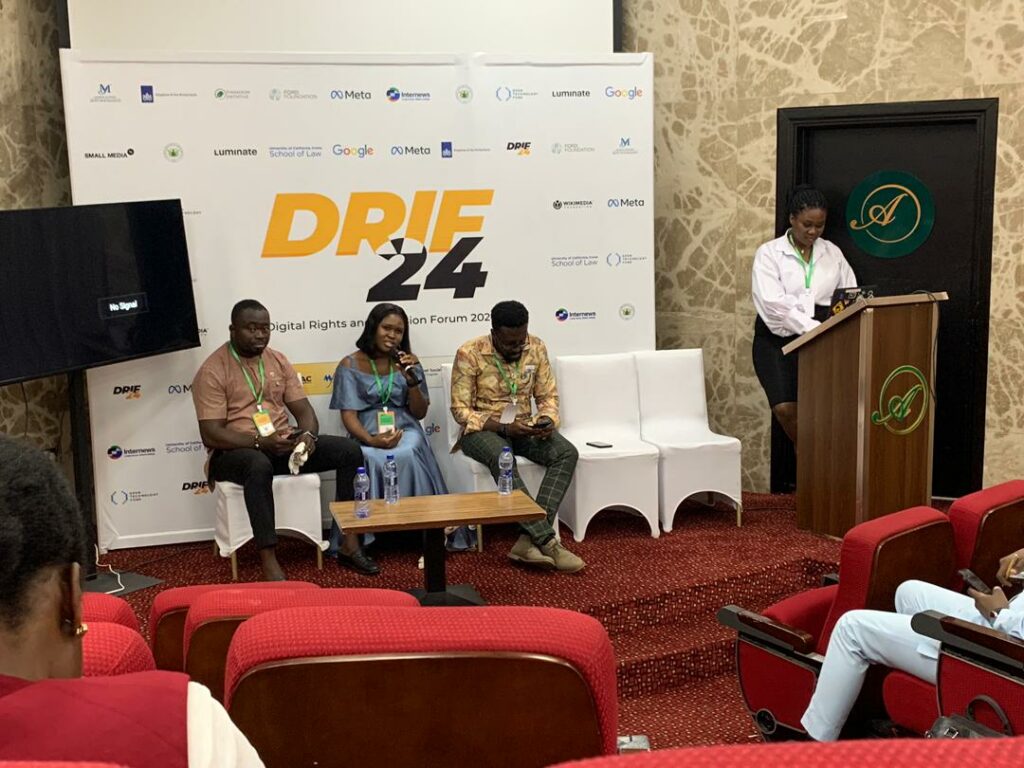In the face of the pressing global challenges posed by climate change, the recent Digital Rights and Inclusion Forum 2024 event hosted by Open Knowledge Ghana brought together a diverse group of stakeholders to explore the intersection of digital rights, sustainability, and inclusion. The panel discussion, titled “Bridging the Gap: Digital Rights, Sustainability, and Inclusion in the Face of Climate Change,” delved into the crucial role that technology, innovation, and digital empowerment can play in addressing the climate crisis.



Unlocking the Power of Open Knowledge
The session kicked off with a thought-provoking lightning talk by Monica Granados, Assistant Director at Open Climate Project, Creative Commons. Granados emphasized the urgent need for open access to knowledge in the fight against climate change. She highlighted the alarming statistic that 57.1% of research outputs from 1980 to 2020 were inaccessible due to paywalls, hindering the progress of scientists, communities, and policymakers.
Granados advocated for a cultural shift towards open knowledge sharing, underscoring the importance of bridging the gap between digital rights, sustainability, and climate action. She outlined the efforts of the Open Climate Campaign to promote the open sharing of research through advocacy, coalition building, policy labs, workshops, and the implementation of robust open access policies.
Empowering Women and Leveraging Technology
The panel discussion, moderated by Maxwell Beganim, the Open Knowledge Foundation Network Anglophone Africa Coordinator, featured esteemed speakers including Francis Acquah Amaning, President of Internet Society Ghana Chapter, Anita Ofori, Executive Director of Women For Sustainability Africa, and Yakubu Adam, Policy, Programmes and Projects Lead at the Institute for Energy Security.
Anita Ofori spoke passionately about the disproportionate impact of climate change on women, emphasizing the need to understand these differences and empower women digitally and economically. She highlighted the importance of closing the gender gap by providing women with opportunities, particularly in the digital space, and the value of collaboration between organizations and grassroots groups to tackle these complex issues.
Francis Acquah Amaning underscored the significance of raising awareness about climate change and leveraging technology to address it. He discussed how digital rights, such as access to information online, are crucial in this endeavor. Acquah Amaning shared examples of how technology can contribute to tackling climate change, from smart meters that help reduce energy consumption to projects like Radionet, which uses AI and Raspberry Pi to help farmers in underserved communities predict rainfall patterns.
The Pivotal Role of ICT in Climate Action
Maxwell Beganim highlighted the critical role of ICT in addressing climate change, emphasizing the need to safeguard the digital ecosystem to protect the rights of activists championing climate action. He acknowledged the contribution of ICT to anthropogenic emissions, from manufacturing to consumer use, and stressed the importance of ICT companies mainstreaming efforts to reduce emissions and utilize renewable energy.
Beganim also discussed how simple actions, such as not charging phones overnight or reducing screen brightness, can contribute to reducing greenhouse gas emissions. He underscored the pivotal role of ICT in climate action, showcasing the potential for technology to both contribute to and help address the challenges posed by climate change.
Fostering Inclusivity and Sustainability
Yakubu Adam shared his impressions of DRIF24, describing it as a remarkable gathering of young innovators committed to addressing inequality and exclusion in Africa’s digital ecosystem. He emphasized the importance of innovation in ensuring inclusivity and sustainability, as outlined in the UN Sustainable Development Goals (SDGs). Adam highlighted how climate change exacerbates global inequality, making it imperative to leverage digital rights and innovation to leave no one behind in achieving these goals.
Collaborative Efforts for Positive Change
The session was marked by engaging discussions and insightful contributions from participants, who actively engaged with the panelists on various aspects of the topic. Abigail Afi Gbadago, the Technical Associate for Open Knowledge Ghana, expertly coordinated the session, ensuring a fruitful exchange of ideas.
As the discussion unfolded, it became evident that bridging the gap between digital rights, sustainability, and inclusion is essential for effectively addressing the challenges posed by climate change. DRIF24 provided a platform for stakeholders to come together, share insights, and collaborate on solutions aimed at promoting digital rights, fostering inclusivity, and advancing social justice in the digital age.








